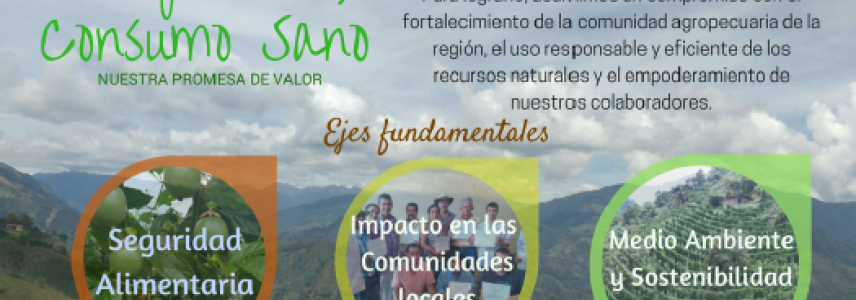Working towards Sustainable Agriculture with the CSR Roadmap

The Tropical and Exotic Fresh Fruit (TEFF) project is part of the Country Programme for Colombia that the Centre for the Promotion of Imports from Developing Countries (CBI) is currently implementing. This programme which runs from 2014 to 2018, aims to position 6 Colombian export sectors in the European market. Within this programme the aim is to improve Corporate Social Responsibility within the companies.
The companies that have been selected for CBI’s Tropical and Exotic Fresh Fruit (TEFF) project in Colombia have been working towards building a Corporate Social Responsibility (CSR)-plan in order to assure a sustainable supply and high-quality production fresh Colombian fruits. During CSR-trainings topics such as labour conditions, health and safety at work, the environment, responsibility in their supply chains were discussed. This was followed by the development of a CSR-plan with the use of CBI’s online tool, called CSR Roadmap. The tool aims to create a clear overview of company values in order to select relevant and measurable goals the company wants to achieve and communicate to their partners.
One example is La Cooperativa Autónoma Regional de Cajamarca (CARC), who have developed a CSR-plan around their brand “Campo sano, consumo sano” (healthy fields, healthy consumption). They are committed to improving the lives of the farmers in the Cajamarca region and have chosen the environment and their impact on local communities as their focus areas. They believe that sustainable methods must be used in the entire supply chain.
As such, their goal is to implement practices that improve waste and resource management and also to train and inform their partners and collaborators in responsible production and the sustainable use of the natural resources. For their other focus area, local communities, good social ties with their community is the pillar of their existence as a cooperation. Improving socio-economic conditions of families in the community results in active participation in communities. CARC is therefore working towards improving the position of its farmers in the cooperation and want to actively involve the families with the cooperation in order to create a greater sense of belonging. Through these efforts for CSR, companies become more aware and active in their methods towards a sustainable supply of fruit in Colombia.